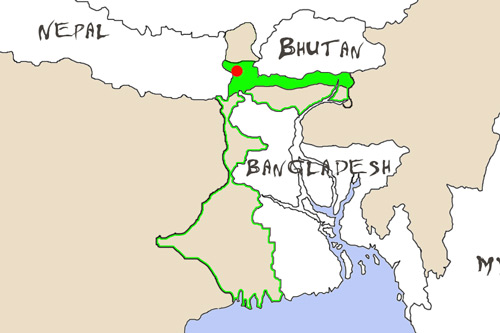7667766266
enquiry@shankarias.in
What is the issue?
Darjeeling and Kalimpong districts, particularly the hill portions, have been in a politically driven near-total civic upsurge over language.
What is the reason?
What is Gorkhaland?


What is the recent development?
What might be the implications for India?
Why the present arragement is not working?
What could be done?
Source: IDSA